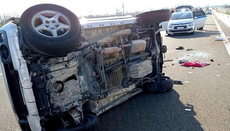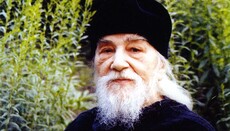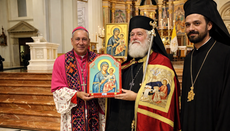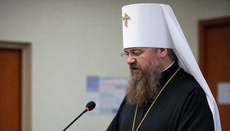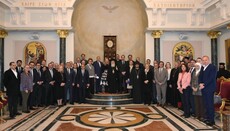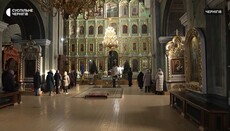Paul Kingsnorth: As the West Falters, a Religious Reawakening Begins
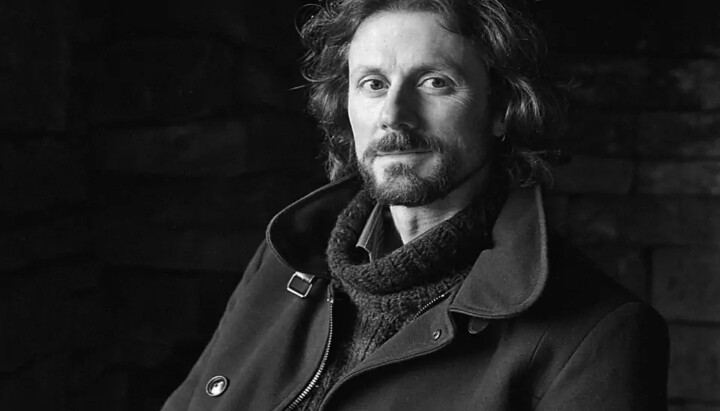
Disillusioned with secular modernity, the West may be entering what thinkers like Yeats and Spengler foresaw — a "second religiousness" amid cultural collapse.
IRELAND — In a piece originally published on UnHerd this past Christmas, Paul Kingsnorth, an English writer and convert to Orthodox Christianity, offered insight into the rise and fall of the New Atheist movement, arguing that the secular story underpinning modern Western society is unraveling — and being replaced by a renewed hunger for the sacred.
"Sometimes I think I’ve been lied to my whole life," his piece, titled "Our Godless era is dead: A second religiousness is sweeping the West," begins.
Many people are feeling the same way, flocking to more traditional forms of Christianity in search of this truth that has been hidden from them. A good percentage of them wind up in the Orthodox Church.
"... I grew up believing in things which I now look on very differently," Kingsnorth elaborates. "To put career before family. To accumulate wealth as a marker of status. To treat sex as recreation. To reflexively mock authority and tradition. To put individual desire before community responsibility. To treat the world as so much dead matter to be interrogated by the scientific process. To assume our ancestors were thicker than us. I did all of this, or tried to, for years. Most of us did, I suppose."
At the root of this, Kingsnorth states, was the teaching that religion is "primitive and obsolete," a bunch of fairy tales created as a mechanism for social control – a mechanism that is no longer applicable "in our very modern, sexually liberated, choose-your-own adventure world."
Reflecting on his own journey from cultural liberalism to Orthodox Christianity, Kingsnorth says Western culture has tried to keep the feasts of religion without enduring its fasts — indulging in freedom, consumption, and progress without spiritual grounding.
As the piece was published on Christmas Day, Kingsnorth dives into the celebration itself, as well as how that celebration has been transfigured since his reception into Holy Orthodoxy.
Coming to learn that a feast without a fast is a "strange, half-finished thing," the Englishman writes that most people, whether they are Christian or not, end up celebrating it, often with no air of religiosity around it – rather a shallow bout of "feasting" that resembles much of what they participate in day-in and day-out to begin with.
"In the Eastern Orthodox Church into which I was baptized, as in the pre-Reformation Catholic Church in Europe, Christmas, like Easter, is preceded by a long fast. The Orthodox fast for 40 days before both major holy festivals, which are then marked by several days of feasting. The fast, as I can currently attest, sharpens the feast. It counts down the days, it provides a communal experience — everyone in the Church is following the same fasting rules together — and most of all it trains the body and the mind to do without, in the service of focusing on something higher. That, at least, is the theory. After doing this for 40 days, Christmas lunch certainly tastes better."
When a culture constantly feasts without fasting and the economy is based on endless, consumer driven growth, Kingsnorth argues that the same thing happens as when you decide that all boundaries and limits go out the window in the name of "freedom."
"It’s like taking a child to a sweet shop and allowing him to eat anything he wants," he writes. "For a while it’s fantastic, and then it isn’t. More, it turns out, is not actually better. More just makes you sick."
He draws on historical theorists like W.B. Yeats and Oswald Spengler, who foresaw cyclical rises and falls of civilizations, with religious revivals often emerging as societies collapse. Kingsnorth believes we are now living through such a revival – a "second religiousness" – manifesting in both healthy spiritual searching and dangerous culture-war crusades.
We are at an impasse: Western culture seems to be collapsing, while a return to truth – Divine Truth, that is – is also taking place. This is confusing to those who believe that a "Christian society" is reflected in wealth, prosperity, and the freedom to do whatever one desires rather than the image of Christ crucified.
The reason(s) for this collapse have been and will be continually debated in political spheres.
"What is the cause?" Kingsnorth asks. "Is it mass immigration? Is it post-modern relativism? Is it the woke Left? Is it the far-Right? And what is the solution? Is it a robust defense of 'enlightenment values'? Is it writing free speech into law? Is it border control? Is it even more YouTube videos?"
The real story, he concludes, is that our true identification is returning to us, and our religious sensibility is revealing itself to us again. While we may know this, we seem to be holding it off for as long as possible. This confrontation can't be put off forever, and it is a confrontation that he himself went through.
I remember the first time I tentatively stepped into an Orthodox church to attend a Divine Liturgy. I had no idea what to do, or what to expect, or whether I even really wanted to be there. From the outside, to the Western mind, it all looks intimidatingly Byzantine — not to mention extremely long. But something happens when you stand, immersed in it all. You come to feel as if you are being carried down a great timeless river to an almost unfathomable destination that you could never reach on your own. But of course, you are not on your own. Not now. You will never be on your own again. You have come home.
As liberal secularism wanes and "silicon paganism" rises, Kingsnorth warns that only inward transformation – not political religion – can offer true renewal.
Kingsnorth lives in west Ireland. His latest book, "Against the Machine: On the Unmaking of Humanity," can be purchased here. More of his writing can also be found on Substack.




